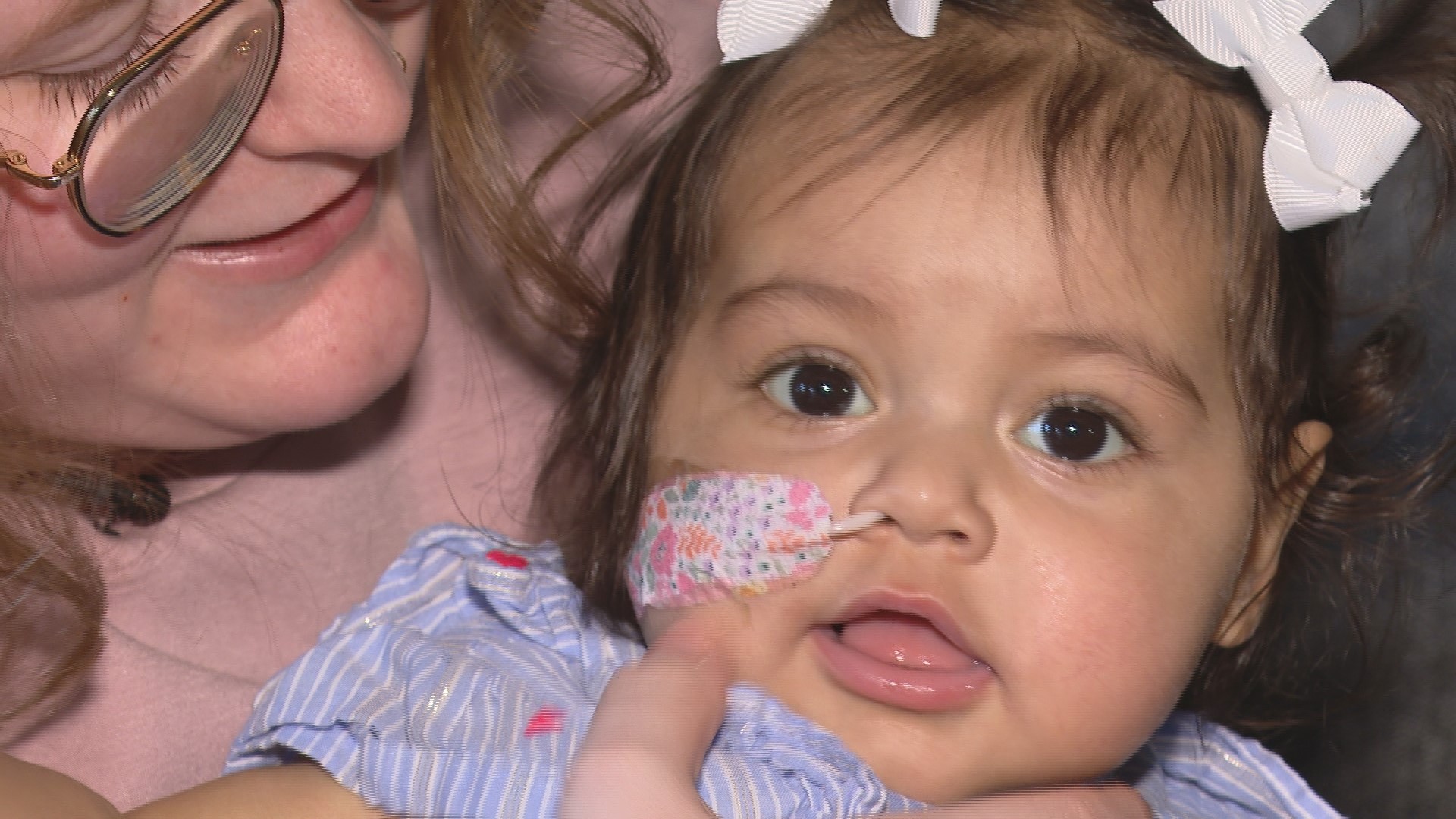FLORISSANT, Mo. — A baby in Florissant, Missouri, is alive today thanks to a living liver donor. Eden Hernandez was born with a liver disease that impacts about 1 in 12,000 newborns.
Eden is now 7 months old but was born with bile ducts that did not develop normally, called biliary atresia. About a month ago, her life was saved by a woman brought into her family by marriage.
"As someone that wants to be a provider and just at the mercy of nurses and doctors, it was hard," Eden's father, Kevin Hernandez, said when he found out something was wrong with his daughter.
Born on July 7, 2023, Kevin and his wife Sarah Hernandez noticed two-and-a-half months later something was wrong with their first child, Eden.
"Her skin was jaundice," Dr. Janis Stoll, a Washington University School of Medicine gastroenterologist at St. Louis Children's Hospital, said. "[Eden's] pediatrician noticed. Her family noticed. Then she came in for further work up."
"Biliary atresia is a disease where the bile ducts outside the liver don't form correctly or become scarred over time, which then in turn damages the liver," Dr. Stoll said.
"There was nothing that I could do," Kevin remembered. "Not being able to provide in ways that I needed to."
Eden needed a liver transplant and a matching donor. She would find one in her family thanks to her cousin-in-law Nadia Hussain.
When Hussain was going through the donor screening process she told 5 On Your Side from New Jersey, "I remember the one question that stuck out to me was the last question, 'On a scale of one to 10 how willing would you be to be that donor if you were chosen? I said, 10. I didn't even blink. I didn't even hesitate, 10."
After flying in from her home in Bloomingdale, New Jersey, Hussain gave a third of her liver to Eden at Barnes-Jewish Hospital on Jan. 18.
With an extraordinary living liver donation like this, doctors said Hussain's liver would grow back fully in four to six months.
Eden will hopefully have this liver for the rest of her life.
"There's nothing I wouldn't do to save my children, to keep my children healthy," Hussain said. "I can't imagine any parent not thinking that way."
For the past two weeks, Eden's parents said it was unbelievable to have her home from the hospital.
"Don't take for granted the day- to-day things that we have here," Sarah said. "The mundane things have actually become more special and important to us."
Stoll said that only about 15% of liver transplants for children come from a living donor like this instead of the deceased donor pool.
Children who are less than a year old have a significantly higher risk of dying while waiting for a liver transplant.
If you're interested in being a living liver donor at Barnes-Jewish Hospital, you can find out how by clicking here.

